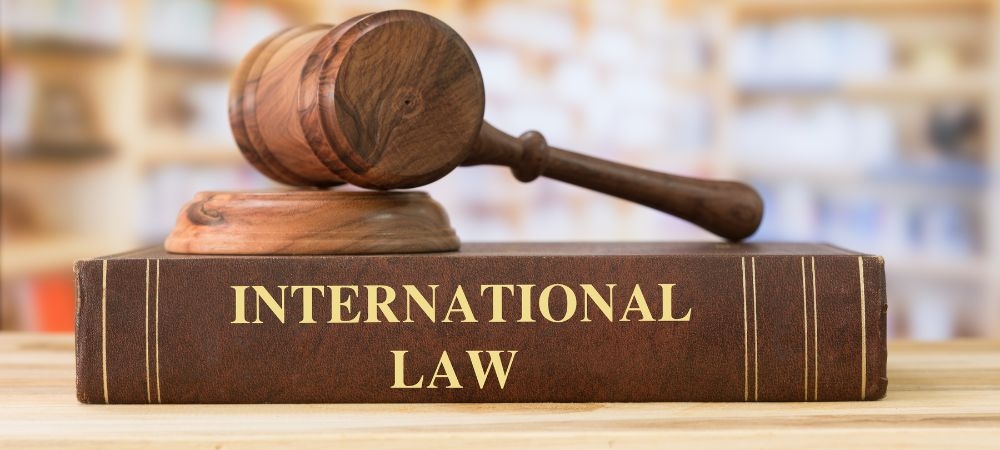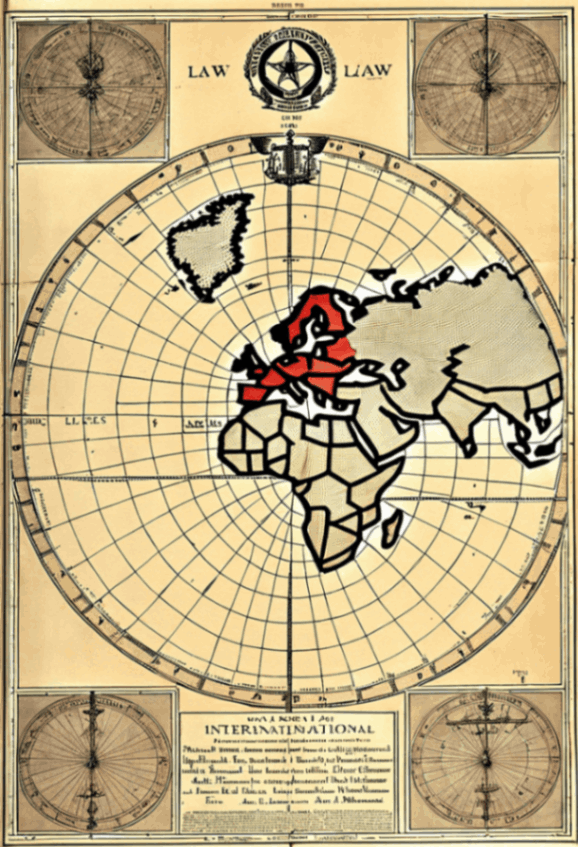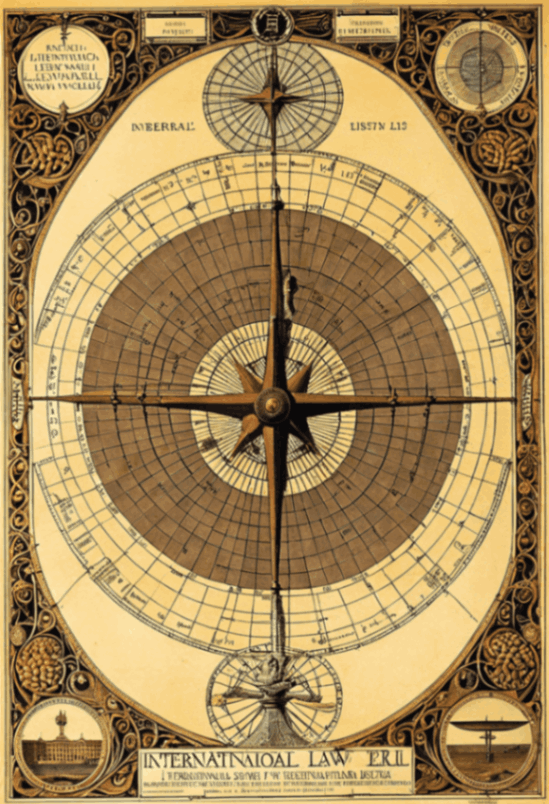

The historical development of International Trade Law ain't something that just popped up overnight. extra information accessible view that. It's taken centuries to evolve into what we know today, and, frankly, it's a bit of a roller coaster ride. Let's dive in.
Back in the ancient times, when people were trading spices and silk across continents, there weren't no formal rules or regulations governing these transactions. Traders relied on trust and mutual agreements which were often flimsy at best. But as trade expanded and became more complex, it was clear that some form of regulation was necessary to avoid disputes and ensure fairness.
Fast forward to the medieval period oh boy, things started getting interesting! The Lex Mercatoria, or "Law Merchant," emerged during this time. It wasn't exactly codified law but rather a set of customs and practices followed by merchants across Europe. This was kinda like the first attempt at creating uniformity in international trade.
Then came the colonial era, where European nations were scrambling to dominate global trade routes. Each country had its own laws regarding trade which led to conflicts not surprisingly! So negotiations began for treaties to standardize certain aspects of international commerce. One could say this was an early form of diplomatic efforts aimed at regulating trade.
However, it wasnt until after World War II that modern International Trade Law really took shape with the establishment of institutions like GATT (General Agreement on Tariffs and Trade) which eventually evolved into the World Trade Organization (WTO). These organizations provided platforms for resolving disputes and setting rules that member countries must adhere to a big leap from those days of informal agreements!
click . The 20th century also saw regional trade agreements coming into play like NAFTA (North American Free Trade Agreement) or the EU's single market policies which further influenced international trade norms.
Todays International Trade Law is a complex web involving bilateral treaties, multilateral agreements, national laws intersecting with supranational regulations - whew! And it's still evolving as new challenges emerge such as digital trade and environmental concerns.
So there you have it! From ancient barter systems through medieval merchant customs to today's intricate legal frameworks - International Trade Law has come a long way indeed. Ain't no denying its importance in our interconnected world now more than ever before.
International Trade Law is a complex field that governs the exchange of goods, services, and intellectual property across international borders. It's not just about rules but also about principles and concepts that shape how countries interact economically. Let's dive into some key principles and concepts, shall we?
First off, one can't overlook the principle of non-discrimination. This is fundamental in international trade law and it's mainly embodied in two forms: Most-Favored-Nation (MFN) treatment and National Treatment. MFN means that any trade advantage given to one country must be extended to all other countries. No favors here! For instance, if Country A reduces tariffs on products from Country B, it must do the same for all other trading partners.
Then there's National Treatment which ensures foreign goods are treated no less favorably than domestic ones after they have entered a market. Imagine buying an imported car; it shouldn't face higher taxes or stricter regulations than a locally made one once it's sold within the country.
Another concept that's pretty crucial is Reciprocity. It's kinda like "you scratch my back, I'll scratch yours." Countries grant each other mutually beneficial concessions through negotiations. If Country A lowers its barriers to imports from Country B, then Country B should reciprocate by lowering its own barriers to imports from Country A.
And oh boy, let's not forget about Free Trade Agreements (FTAs). These are treaties between two or more countries aimed at reducing or eliminating barriers to trade - tariffs being a biggie here. FTAs often go beyond just reducing tariffs; they can cover aspects like intellectual property rights, labor standards, and environmental protections too.
Now comes Trade Remedies these ain't exactly pleasant topics but they're necessary evils sometimes. Anti-dumping measures are taken when a country believes another is dumping products at unfairly low prices harming domestic industries. Countervailing duties come into play when subsidies provided by exporting countries distort the competitive landscape for domestic producers.
We can't ignore Dispute Settlement either! The World Trade Organization (WTO) plays a massive role in this area through its dispute resolution mechanism. When countries disagree over trade issues and trust me they do quite often WTO provides them with a platform to resolve their differences amicably (well most times).
Lastly but definitely not leastly: Harmonization of Standards aims at making sure different nations' regulations don't act as hidden barriers to trade while ensuring safety quality etcetera remains intact across borders!
Phew! I hope this gives you an idea about some key principles & concepts shaping International Trade Law today despite my grammatical slips here n there ????
In the UK, the principle of " typical regulation" initially established during the Center Ages, which describes law developed via court decisions and criterion rather than via legal laws.
The concept of lawful aid, which makes certain lawful depiction to those who can not afford it, was first presented in the 20th century and has come to be a critical element of civil liberties.
Sharia Legislation, derived from the Quran and the Hadiths, plays a crucial function in the legal systems of numerous countries in the center East and North Africa.
International Regulation, as a field, dramatically evolved after World Battle II, with the facility of the United Nations and different global treaties focused on maintaining peace and safety.
Ah, major international trade agreements and organizations, what a fascinating topic! It's hard to overstate their importance in today's global economy. These entities and pacts have shaped how countries interact economically, affecting everything from tariffs to intellectual property rights.
First off, let's talk about the World Trade Organization (WTO). You can't discuss international trade without mentioning the WTO, it's just impossible. Established in 1995, it's kind of like the referee for international trade. The WTO aims to ensure that trade flows as smoothly and predictably as possible. And don't think it's all sunshine and rainbows; there are plenty of disputes and disagreements it has to handle. However, its role is undeniably crucial.
Next up is NAFTA or should I say USMCA? Ah yes, the North American Free Trade Agreement was replaced by the United States-Mexico-Canada Agreement in 2020. Same actors but with some significant changes. This agreement aimed to eliminate most tariffs between these countries and create a trilateral trade bloc in North America. Critics argued it didn't do enough for labor rights or environmental protections but hey, nothing's perfect right?
Then there's the European Union (EU), which isn't exactly an "agreement" per se but more of a supranational organization with its own set of rules governing trade among its member states. The EU single market allows goods, services, capital, and people to move freely across borderswell at least within member countries. It's been quite successful although Brexit has thrown quite a wrench into things lately.
Oh my gosh how could I forget about the Trans-Pacific Partnership (TPP)? Initially signed by 12 countries around the Pacific Rim including heavyweights like Japan and Australiaoh waitthe U.S pulled out in 2017 under then-President Trumps administration! It was renamed CPTPP after that incidentally stands for Comprehensive and Progressive Agreement for Trans-Pacific Partnership. Talk about a mouthful!
And let's not overlook bilateral agreements like those between China and various African nations or between South Korea and Chile etcetera etcetera... They might not get all the headlines but they significantly affect local economies too.
In conclusion folks international trade agreements are complex webs connecting various national interests economic policies cultural perspectives you name it! They're not always fair nor universally loved yet they play pivotal roles shaping our world today.
So yeah next time someone says "Why bother learning about this stuff?" Remember they're part of what makes your smartphone affordable your coffee exotic your car multi-national basically making modern life possible!
There you goa whirlwind tour through some key players on this vast stage called International Trade Law!


Dispute Resolution Mechanisms in International Trade Law
International trade, as dynamic and beneficial as it may be, ain't without its fair share of disputes. Disagreements arise over tariffs, market access or even the quality of goods. When countries can't see eye to eye on these issues, they need a way to resolve their disputes. That's where dispute resolution mechanisms come into play.
First off, we got the World Trade Organization (WTO). It's like the big brother in international trade law. The WTO has established a comprehensive system for resolving disputes between member countries. This mechanism ensures that trade flows smoothly by providing a forum where countries can negotiate and settle their differences without resorting to tit-for-tat retaliations.
The process usually starts with consultations think of it as a diplomatic chat over coffee. If that don't work out, the matter moves on to a panel stage where experts weigh in and give recommendations based on WTO agreements. Should any party still be unhappy with the outcome, there's an appellate body that reviews the panel's decision. It ain't perfect but it's pretty structured.
Now, lets not forget about regional trade agreements (RTAs) either; they're also crucial players here. Many regions have their own set of rules for resolving disputes among members. Take the North American Free Trade Agreement (NAFTA), which has now been replaced by USMCA it had specific chapters dedicated to dispute resolution too! These mechanisms often mirror those of the WTO but are tailored to regional needs.
Arbitration is another popular method outside formal organizations like WTO or RTAs. Countries sometimes prefer arbitration because it's more flexible and private than traditional litigation processes. The International Chamber of Commerce (ICC) offers arbitration services which many find efficient and less bureaucratic compared to other methods.
But hey, nothing's flawless; there are criticisms too! Some argue that these mechanisms favor more powerful nations who can afford prolonged legal battles or influence decisions through political clout. Smaller economies sometimes feel they're getting shortchanged when pitted against economic giants within these frameworks.
Moreover, compliance can be tricky business; just because there's a ruling doesn't mean every country follows through immediatelyor at all! Enforcement remains one thorny issue despite all efforts towards creating binding resolutions under various systems.
In conclusion - while dispute resolution mechanisms in international trade law provide valuable tools for maintaining global commerce harmonythey're far from foolproof solutions without flaws or criticisms worth noting down along this journey towards better global cooperation!
So yeahdisputes will always exist but having structured ways helps keep things somewhat orderly amidst chaos otherwise looming large over our interconnected world economy today!
International trade law is a complex field, involving an intricate web of treaties, agreements, and regulations. But let's not forget the role national laws play in this grand scheme. It's easy to think international trade is governed solely by global rules and organizations like the World Trade Organization (WTO), but that's just not true.
National laws are crucial in shaping how countries engage in international trade. They set out the regulations that businesses must follow when exporting or importing goods and services. Sometimes these laws can be pretty restrictive, which ain't always beneficial for fostering smooth trade relations. For instance, tariffs and quotas imposed by a country can significantly affect the flow of goods across borders.
One can't ignore that national laws also serve to protect domestic industries from unfair competition. Anti-dumping laws are one such example; they prevent foreign companies from selling goods at less than fair value, harming local producers. These measures might seem protectionist, but they're designed to maintain a level playing field.
However, there's no denying that conflicting national laws can create a maze for companies trying to navigate international markets. Different standards and requirements between countries can lead to inefficiencies and increased costs for businesses. Imagine you're a company trying to export electronics you need to comply with various safety standards in each market you enter. That's not only time-consuming but also expensive.
Moreover, inconsistencies between national regulations can sometimes result in trade disputes between countries. Such conflicts often end up being resolved through international arbitration or before bodies like the WTO's Dispute Settlement Mechanism.
Yet despite all these challenges, national laws are necessary for maintaining order within borders while engaging globally. They reflect a country's priorities and concerns whether it's consumer protection, environmental sustainability, or labor rights.
In conclusion, while global rules set by institutions like the WTO provide a framework for international trade, national laws bring in specificities tailored to each country's needs and circumstances. The interplay between these levels of regulation makes international trade law both fascinating and challenging! So next time you think about international trade law don't overlook those pesky yet pivotal national regulations.


International trade law is meant to facilitate smooth transactions between countries, but it's far from perfect. In fact, there are a bunch of challenges and criticisms that folks often bring up about the current international trade law frameworks.
First off, let's talk about complexity. These laws ain't easy to understand for the average person. Heck, even experts sometimes struggle with all the legal jargon and intricate rules. This complexity can be a real barrier for small businesses trying to enter the global market. They just don't have the resources to navigate these complicated waters, which means they often get left out.
Then there's inequality. One of the major criticisms is that current international trade laws mostly favor developed nations over developing ones. It seems like richer countries always get better deals while poorer nations are stuck with less favorable terms. That's not fair at all! This kind of imbalance creates a whole lotta tension and resentment between countries.
And lets not forget about enforcement issues. Sure, there are rules in place, but who's really making sure they're followed? The enforcement mechanisms are often weak or inconsistent. Some big players might get away with bending or breaking the rules with little to no consequences, while smaller countries face harsh penalties for minor infractions.
Another sticking point is environmental impactor rather, lack of consideration thereof. Current trade laws dont do enough to address environmental concerns. With climate change being such a huge issue nowadays, its kinda shocking that international trade laws havent caught up yet. Critics argue that these frameworks should incorporate stricter regulations on environmental protection.
Oh boy, we also gotta talk about labor rightsor again, the lack thereofin many trade agreements. Many critics say that international trade laws allow companies to exploit workers in developing countries by paying them low wages and subjecting them to poor working conditions. Theres simply not enough emphasis on protecting labor rights within these legal structures.
Lastly, there's transparencyor shall I saylack of it? Negotiations for international trade agreements often happen behind closed doors without input from civil society or other stakeholders who will be affected by these deals. This secrecy fuels suspicions and distrust among people who feel like their voices arent being heard.
In summary (not trying to repeat myself), while international trade laws aim at promoting global commerce and cooperation, they're riddled with problemsfrom complexity and inequality to weak enforcement and inadequate attention to environmental and labor issuesnot forgetting transparency woes as well! Addressing these challenges requires more inclusive dialogue involving all stakeholders so everyone feels heard and respected in shaping future policies.